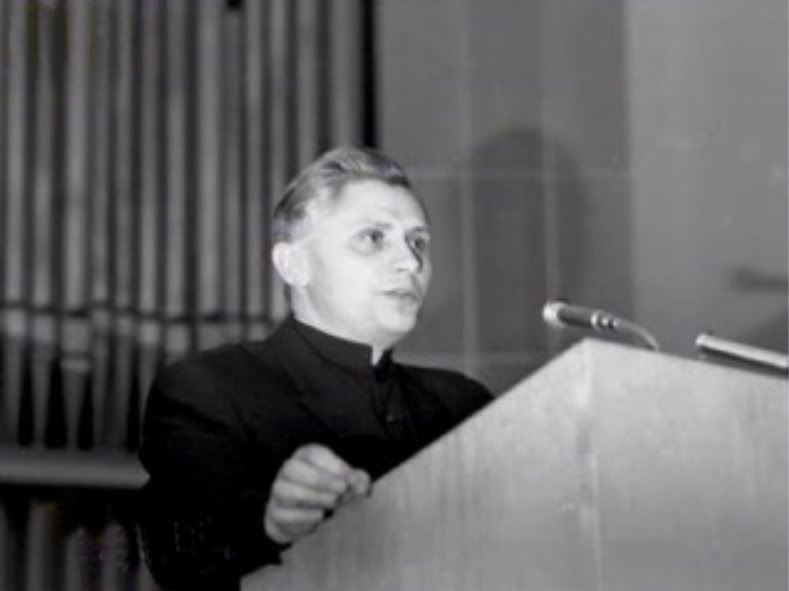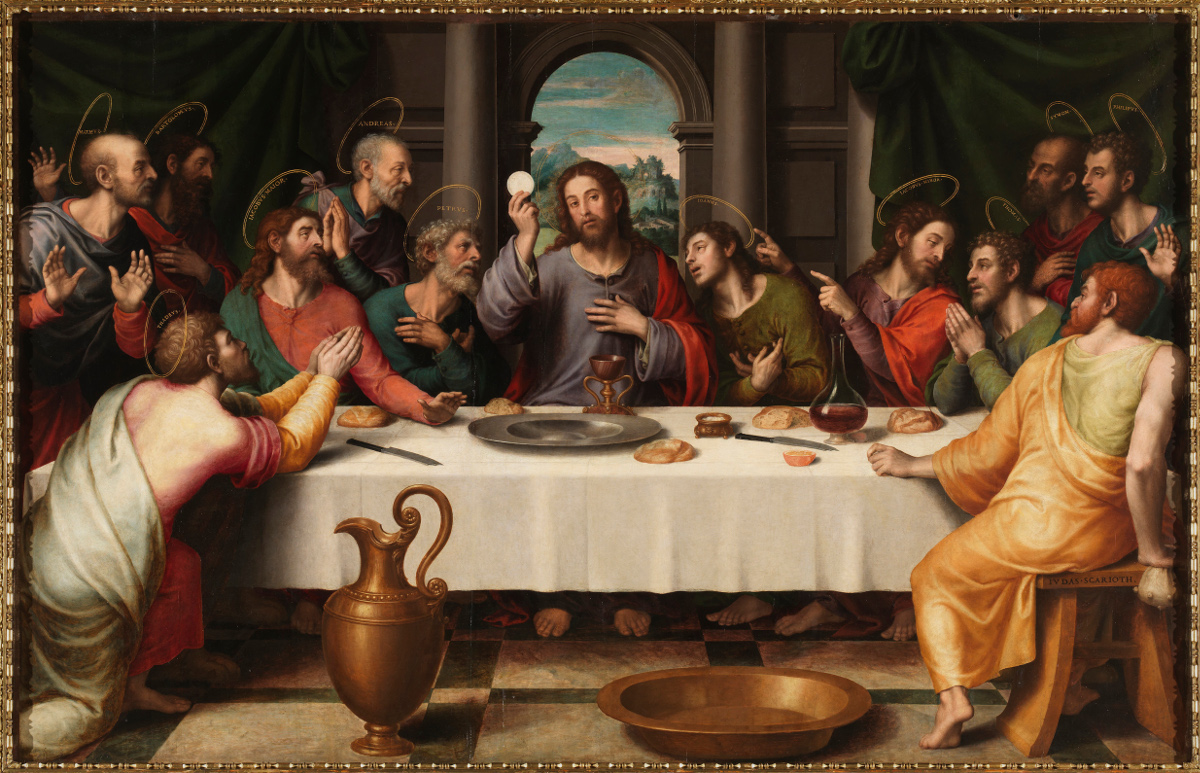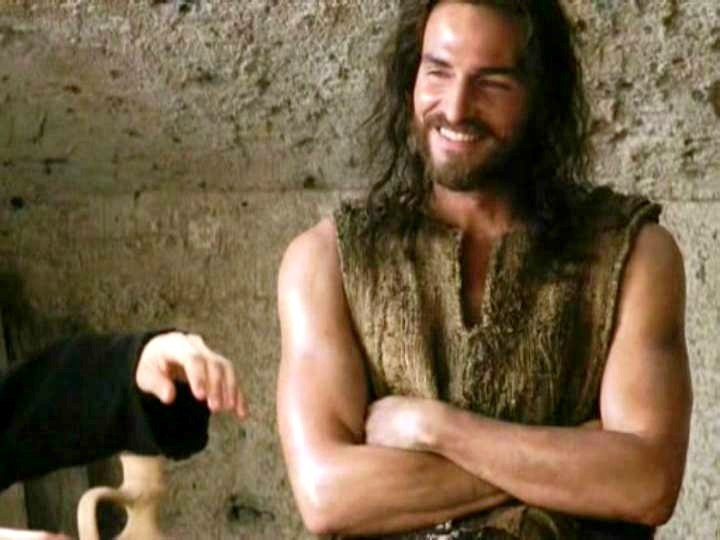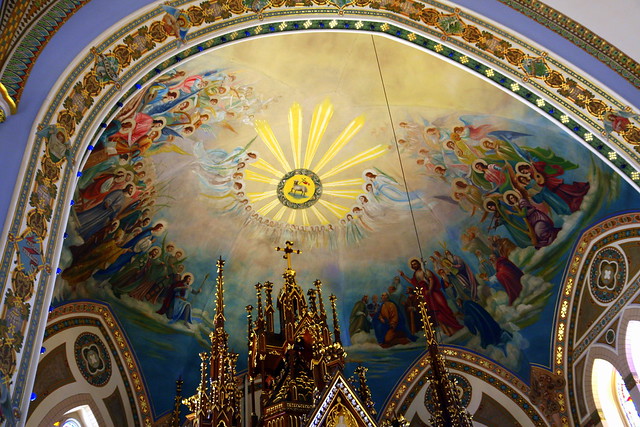I think there is almost no word that is so misused with reference to Scripture than "literal". Most people seem to think it exists in a dichotomy with "metaphor", "analogy" or "allegory". Allow me to be as clear as I can: this is most certainly NOT the case! I think it sets up a tension between the human and divine authors, really.
What people think "literal" means
This is the understanding of "literal" that I encounter most of the time. People will say, "In Exodus 31:18, it says that the Ten Commandments were written on the stone tablets by the finger of God. Do you interpret this literally or metaphorically?" If one says literally, because it's God's Word and that's what it says, and so we are talking about God actually having a finger, then one could be accused of turning God into a human being with a body. But if one says metaphorically, since God obviously is non-material, then one may be accused of ignoring inconvenient parts of Scripture, and not taking God at His Word, or saying that He is deceiving us.
I am going to suggest that, in fact, no such dilemma exists.
Behold, the Catholic notion of the four senses of Scripture!
From the
Catechism of the Catholic Church 115-117:
The senses of Scripture
115 According to an ancient tradition, one can distinguish between two senses of Scripture: the literal and the spiritual, the latter being subdivided into the allegorical, moral and anagogical senses. The profound concordance of the four senses guarantees all its richness to the living reading of Scripture in the Church.
116 The literal sense is the meaning conveyed by the words of Scripture and discovered by exegesis, following the rules of sound interpretation: "All other senses of Sacred Scripture are based on the literal."83
117 The spiritual sense. Thanks to the unity of God's plan, not only the text of Scripture but also the realities and events about which it speaks can be signs.
1. The allegorical sense. We can acquire a more profound understanding of events by recognizing their significance in Christ; thus the crossing of the Red Sea is a sign or type of Christ's victory and also of Christian Baptism.
2. The moral sense. The events reported in Scripture ought to lead us to act justly. As St. Paul says, they were written "for our instruction".
3. The anagogical sense (Greek: anagoge, "leading"). We can view realities and events in terms of their eternal significance, leading us toward our true homeland: thus the Church on earth is a sign of the heavenly Jerusalem.
Ok, what does all that mean?
The original use of the word "literal" (as invented by the medieval exegetes), refers to the meaning of the text as the author intended. It asks: why do we have the text that we do? What was the author's purpose in writing this way? What was he intending to say? This sense is primary and fundamental, since it is through the human author that God chose to work. The text was born out of a particular context and a particular time, and so if we are to understand what the author intended to say, we must take the context into consideration also.
Understanding literal in this way, we can affirm that we do indeed take all of scripture literally, in that all of it was written by inspired human authors trying to say particular things. But these authors can and do use the literary
tools of metaphor, allegory or analogy (or hyperbole, onoematopoeia, juxtaposition, alliteration, parallelism, etc) to
convey their intended meaning.
For example, Ex. 15:6 reads
Thy right hand, O LORD, glorious in power,
thy right hand, O LORD, shatters the enemy.
Does God actually have a right hand? Obviously not. So what is the author saying? God's right hand is a metaphor for His power and strength. So the author is literally intending to convey God's might, using the literary instrument of a metaphor. (I'm not entirely sure whether metaphor is precisely the right word to use here, but I'll use it anyway for lack of a better one.)
Now, the spiritual senses flow from the literal sense. Or, to put it another way, they are grounded in the literal sense. This means that whatever we understand the literal sense to be, will affect what we think the spiritual senses are.
Each of the spiritual senses is tied to one of the three theological virtues:
Understanding the text through the eyes of
faith yields the allegorical sense, in which we ask "how is Christ presenting Himself to us here?"
Understanding it through the lens of
charity yields the moral sense, in which we ask "how should I live differently, having heard this particular text of God's Word?"
Understanding it in the light of
hope reveals the anagogical sense, which includes both how we get to Heaven, and what Heaven will actually be like.
But why haven't I ever heard this before?!
Good question.
I first heard this when I had finished my first degree, at YLFC. Our lectures that day were both on Scripture, and we had a lecturer from Notre Dame come and talk to us. This was one of the first things we covered in that class, before leaping into an epic overview of the Bible. And it blew me away. It just seemed to make so much
sense. (ha, excuse the pun!) Here was the answer to how on earth those Old Testament books could be relevant to us Christians. Some things were obviously relevant, like prophecies relating to the Messiah, but what of those historical books about kings and stuff? So Solomon has a dream. Great. How does one glean meaning from that?! Here was the answer! No longer did the Bible seem so incomprehensible. Well, obviously understanding it still requires work, but at least I had an inkling now of how it was actually possible.
I felt so cheated that no one had ever told me this before!! And perhaps that's how you're feeling now. But excited also, no?
To conclude, an example
I'm going to look briefly at the story of Abraham's test of faith, to sacrifice his son Isaac.
Go read it here.
 |
| Abraham and Isaac: The angel says, "Nooooo!" |
Literal sense: God is testing Abraham's faith. So us readers can guess that He won't make Abraham go through with it, but Abraham doesn't know that. He is asked to sacrifice his son on a mountain three days journey away. Abraham doesn't question it, but heads off immediately the next day, although he obviously cares deeply for his son (eg. Gen. 22:7- his response "here am I" is that of a servant, essentially saying "at your service", or, "I am completely at your disposal". Note that this is how he responds to God in v.1. Also recall that Isaac is the long-awaited for son, through whom all the promises that God has made to Abraham will be fulfilled). Abraham sets things up (and notice Isaac's astonishing lack of protestation, a sign of immense trust in his father), and is about to do the deed, when God stops him, and provides a ram instead. Recall that in v.8 he tells his son that "God Himself will provide the lamb". This suggests that he trusts in God so absolutely that he believes He will do something to make the situation right. Which He does, but He provides a ram, not a lamb. God then blesses Abraham for not withholding even his only son from Him.
Allegorical sense: Isaac, the only son, carries the wood for the sacrifice, while Christ, the only Son of God, carries the cross upon which He will be sacrificed. And although Abraham does not have to give up his son in the end, God the Father does indeed provide the Lamb, Christ.
Moral sense: do I live my faith out with such radical trust?
Anagogical sense: It is through faith in the Lamb that we are able to enter Heaven.











